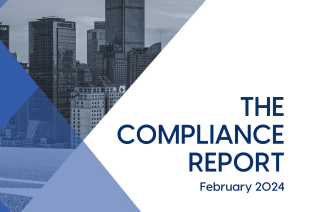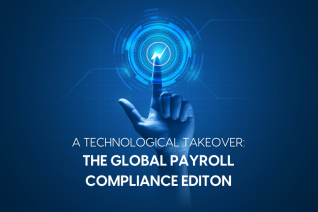Establish your presence globally with Neeyamo as we help you go beyond borders to manage your international payroll and hire new talent in Sudan.
Overview
When discussing ancient pyramid structures, one's thoughts often turn to the famous pyramids of Egypt. However, it may come as a surprise that Egypt does not actually have the highest concentration of pyramids within a single country. That distinction belongs to Sudan.
Sudan can be considered the pyramid capital of the world, with over 200 pyramidal monuments found within its borders, significantly outnumbering the roughly 100 pyramids in Egypt. In addition to its remarkable pyramid density, Sudan offers other lesser-known attractions, including a highly skilled and capable workforce recognized for their talents across various industries.
Do your organization's expansion plans require hiring employees in Sudan? Do you lack a physical entity in the country – a key requisite to hire local talent? Neeyamo – one of the top Global payroll providers, assists organizations worldwide with onboarding and managing employees in Sudan - processing payroll, managing local compliance requirements, benefits, and more.
Tools And Instances
Facts And Stats
Capital
Khartoum
Currency
Sudanese pound
Official Language
Arabic
Fiscal Year
July 1 - June 30
Date Format
DD/MM/YYYY
Country Calling Code
+249
Other Languages
English
Time Zone
UTC+ 2
Global Payroll
Overview
Handling payroll for a widespread workforce can pose as a major challenge for any firm. The added complication of compliance can make things worse and drastically effect the time and efforts that can be used in other equally important aspects of an organization's development.
Over the years, Neeyamo has observed these complexities and strived to provide a global payroll solution through a single technology platform, Neeyamo Payroll.
Payroll Taxes
Payroll tax is the percentage amount retained from an employee's salary and paid to the government to invest in the welfare of the general population.
Employee Taxes
Employees (citizens and expatriates) must contribute 8% of their monthly salary.
|
Taxable income (SDG) |
Rate |
|
Up to 3 000 |
0% |
|
3 000 to 6 000 |
5% |
|
6 000 to 10 000 |
10% |
|
Over 10 000 |
15% |
Employer Taxes
Employers must contribute an amount equal to 17% of the monthly salaries
Payroll Cycle
Overview
Undoubtedly, payroll is a critical aspect of any organization. The Pay cycle is a notable feature that provides a sense of accountability for an employee to be paid consistently for their work.
Frequency
The wage is payable once a week, once every fortnight, or once a month, depending on each case, at the workplace and during the working hours.
13th Month Cycle
In Sudan, there is no statutory requirement to pay the 13th or the 14th month salary.
Global Work
Overview
An Employer of Record service provider helps you get rid of the hassle of handling the complexities that come with setting up a new employee in remote locations. They act as legal employers, facilitate salary payments, and handle everything from health insurance, payroll taxes, and employee benefits to comply with local tax laws and regulations.
This ensures that the client company can focus on the employee’s everyday tasks safely in the knowledge that they have a cost-effective solution as they continue their global expansion.
HR Mandates and Practices
Minimum Wage
The minimum wage in Sudan is 425 Sudanese pounds per month, applicable to all workers.
Overtime
In cases of force majeure, employers can ask workers to do overtime immediately after regular work hours, but only for up to 4 hours. Outside of force majeure situations, both the employer and worker need to agree on overtime, but it can't exceed 4 hours per day or 12 hours per week. Women can choose whether or not to do overtime during the specified period. Workers get paid extra for overtime: one and a half times their regular wage for normal work days and double their wage for official holidays. Overtime pay is based on the basic salary.
Data Retention Policy
The laws of Sudan do not specify the data retention period in Sudan. However, they emphasize the importance of understanding and complying with data retention requirements across various jurisdictions, including the need for organizations to structure their retention policies in compliance with global data retention requirements. This includes knowing what to retain, the minimum and maximum storage periods, and the dates from when records need to be held, as well as distinguishing between statutory and recommended requirements.
Hiring and Onboarding Requirements
Hiring
The hiring preferences in Sudan revolve around sectors. The oil industry, before South Sudan's secession in 2010, also played a substantial role in Sudan's economy. Expats often find opportunities in Sudan's rich oil industry or engage in humanitarian work, with a notable expat community in Khartoum. Job seekers can explore professional roles.
Onboarding
In Sudan, new hires are typically required to submit the following documents when onboarding:
- National ID
- A valid passport
- Completed application form
- Passport-sized photos
- Old passport (if applicable)
- Air ticket (if applicable)
- Medical reports
- CV (Curriculum Vitae)
- Proof of academic qualifications (if applicable)
Probation
The trial period lasts for up to three months, except for training. If neither party ends the contract after this trial period and the employment isn't for a set duration, it's considered indefinite.
Leave
Public Holiday
- January 1 - Independence Day
- January 7 - Coptic Christmas
- April 10 - Eid al-Fitr (Tentative Date)
- April 11 - Eid al-Fitr Holiday (Tentative Date)
- April 12 - Eid al-Fitr Holiday (Tentative Date)
- April 13 - Eid al-Fitr Holiday (Tentative Date)
- May 5 - Coptic Easter
- June 16 - Eid al-Adha Holiday (Tentative Date)
- June 17 - Eid al-Adha (Tentative Date)
- June 18 - Eid al-Adha Holiday (Tentative Date)
- June 19 - Eid al-Adha Holiday (Tentative Date)
- June 20 - Eid al-Adha Holiday (Tentative Date)
- July 8 - Muharram (Tentative Date)
- September 16 - The Prophet's Birthday (Tentative Date)
- December 25 - Christmas Day
Annual Leave
- Workers are entitled to annual leave with full pay after one year of continuous service.
- Duration of leave is determined annually based on work requirements.
- The number of days off depends on years of service: 20 days for 1-3 years, 25 days for 8-15 years, 30 days for 15+ years.
- Days off and official holidays during leave are counted as part of annual leave.
- Financial compensation or leave entitlement upon termination or resignation.
- Option to postpone or split annual leave with employer's consent.
Leave for Travel, Holidays, and Official Holidays
- Paid travel time from workplace to place of origin annually.
- Travel time is limited to 10 days.
- Full pay granted for holidays and official holidays after three months of continuous service.
Maternity Leave
- Female workers are entitled to maternity leave with full pay after six months of service.
- Duration of leave varies based on the timing of confinement and the doctor's certification.
- Forbidden to terminate contract during pregnancy or confinement period.
Sick Leave
- Workers are entitled to sick leave with full pay for the first three months of absence.
- Half pay for the next three months, then 25% pay for the subsequent three months.
- Sick leave with reduced wage is granted after exhausting normal leave.
- Unpaid sick leave if illness lasts beyond a specified period until examination by medical committee.
Idda (Mourning) Leave
- Female workers are entitled to leave with pay upon the husband's death.
- Duration of the idda period varies based on pregnancy status.
- Idda leave ends with confinement if pregnant, followed by maternity leave.
Hadj Leave
- Workers with three consecutive years of service are entitled to 15 days' leave with pay for Hadj pilgrimage.
- Leave is granted once during worker's service.
- Workers are required to provide evidence of pilgrimage upon request by the employer.
Termination
Overview
Notice Period: An employer or employee can usually end a job with written notice (length depends on your pay and service time).
Reasons for Ending a Job (Employer):
1. Worker can't do their job anymore (needs doctor's confirmation).
2. Job ends or contract expires.
3. Company closes down.
4. Worker reaches retirement age (unless agreed otherwise).
5. Serious misconduct by a worker during the probation period.
6. Agreed termination with written notice from both sides.
7. Company dissolves or goes out of business (officially confirmed).
Reasons for Ending a Job (Employee):
1. Employer lied about the job details when hiring.
2. Employer fails to meet their obligations to the employee (as per this code or the employment contract).
3. The employer or their representative assaults the employee.
4. Serious threat to the employee's safety or health (and the employer didn't fix it).
Important Details:
- There are specific rules for calculating notice period based on your wage and service time (document has details).
- If proper notice isn't given, the wronged party might get compensation.
- Employees can leave early after giving half the notice period, but they won't get paid for the remaining notice time.
- Annual leave isn't counted towards the notice period.
- Retirement age is generally 60, but exceptions can be agreed upon.
Exceptions (without Notice):
Employer: Worker lied about identity/documents, caused serious financial loss, ignored safety instructions, deliberately failed job duties, revealed company secrets, got convicted of a serious crime, assaulted employer/supervisor/colleague, was intoxicated/drugged at work.
Employee: Employer lied about the job, failed to meet their obligations to the employee, and assaulted the employee.
Dispute Resolution:
- There's a process to challenge termination if you believe it wasn't fair.
- A committee can investigate and decide if the termination was justified.
- If termination wasn't justified, the employee might get their job back and compensation.
Company Closure/Workforce Reduction:
- Companies need approval from the government to close down or significantly reduce their workforce due to economic or technical reasons.
- There are specific steps companies must follow to get this approval.
Leaving During Work Travel:
- If a worker's contract ends while travelling for work, the employer can extend it for up to a month to ensure a safe return.
- The worker would get extra pay for this extension.
Leaving a Job:
Employees can generally resign with notice as outlined earlier.
Service Certificate:
Employees who leave a job are entitled to a certificate from their employer stating their employment details (excluding termination reasons).
Notice Period
The notice period depends on your wage type and service time:
- Monthly wages: 1 month notice
- Half-monthly wages (<5 years service): 2 weeks notice
- Weekly wages (<2 years service): 1 week notice
- Weekly wages (2-5 years service): 2 weeks notice
- Daily wages (<3 months service): Last day of work notice
- Daily wages (3 months-2 years service): 1 week notice
- Daily wages (2-5 years service): 2 weeks notice
- Daily/Weekly/Half-monthly wages (>5 years service): 1 month notice
- Reaching retirement age (60 years old) requires six months notice.
Severance Pay
Here's how severance pay is calculated in Sudan (unless a more favourable benefit applies):
- You need at least three years of continuous service to qualify.
- Severance pay is based on your last monthly basic salary.
Employees who leave after 3+ years:
- 3-10 years of service: 1 month's pay per year of service.
- 10-15 years of service: 1.5 months' pay per year for the next five years.
- 15+ years of service: 1.75 months' pay per additional year, capped at 36 months' pay total.
Seasonal Workers (3+ months/year, total 3+ years):
- Severance pay is calculated the same as above.
- One season is considered one year for calculating service time.
- Monthly salary is based on the average income from the last three years divided by 36 months.
Re-employment:
- You can ask your new employer to consider your previous service time as continuous.
- You might need to pay them your previous severance pay or agree on a payment method.
Visa
Overview
In Sudan, individuals who wish to work in the country need to apply for a work visa through the Embassy of Sudan. The requirements for a Business/Work/Humanitarian Work visa include:
- A filled-out and signed application form.
- Valid passport (must be valid for at least six months).
- One passport-sized photo attached with the application form.
- A letter from the sponsoring company indicating the type of work, duration of stay, statement of financial responsibility, and references in Sudan
For applicants holding non-US passports, a copy of a valid residence permit in the United States is required.
Applicants looking to perform humanitarian work must present a corresponding certificate from the sending organization.
It is important to note that the visa application process may take up to 2 weeks to process, and applicants are advised to provide all necessary documentation as requested by the embassy.
Employee Background Checks
Legal and Background Checks
In Sudan, the statutory requirements for employment background verification may vary based on the specific circumstances and the nature of the job. Employers in Sudan are typically required to complete Form I-9 to verify the identity and employment authorization of all new employees within three days of hire.
Additionally, when applying for a Sudan Employment visa, individuals need to provide various documents to verify their identity, nationality, and eligibility for employment in Sudan.
Last updated on March 5, 2024
If you have any queries or suggestions, reach out to us at irene.jones@neeyamo.com
Have Queries? Get In Touch With Us
Get in touch with one of our experts and take a quick demo of our services








